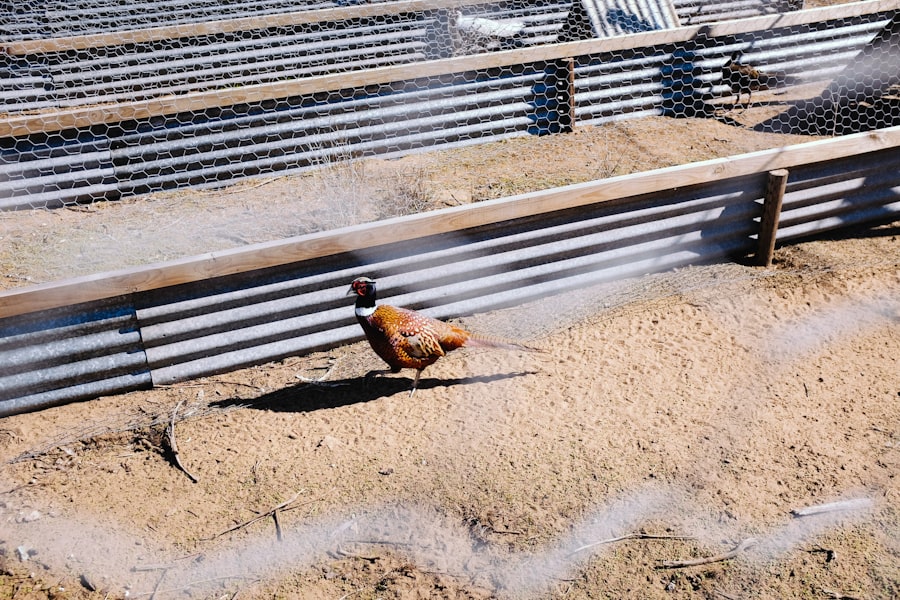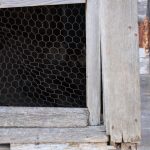Chickens are naturally curious and opportunistic eaters, often attracted to the bright color and juicy texture of tomatoes. Tomatoes provide essential nutrients like vitamin C, potassium, and antioxidants, which may appeal to chickens. However, tomato seeds and skin contain solanine, a compound toxic to chickens in large quantities.
Despite this, chickens may consume tomatoes due to their natural foraging behavior, unaware of potential risks. Chickens may develop a preference for tomatoes if previously exposed to them. Once they acquire a taste for a particular food, they may continue seeking it out, even if it is not beneficial.
Understanding these behaviors is crucial for chicken owners to address tomato consumption effectively. Boredom or insufficient access to regular feed may also lead chickens to eat tomatoes. Providing a stimulating environment and ensuring access to a balanced diet can help reduce their inclination to seek alternative food sources like tomatoes.
Table of Contents
Key Takeaways
- Chickens eat tomatoes because they are attracted to the bright color and juicy texture, as well as the seeds and flesh inside.
- Fencing and netting can be effective physical barriers to prevent chickens from accessing tomato plants and fruits.
- Providing alternative feeding options such as mealworms or scratch grains can distract chickens from eating tomatoes.
- Planting natural deterrents like marigolds and herbs such as basil and mint can help repel chickens from tomato plants.
- Training and behavior modification techniques can be used to teach chickens to avoid eating tomatoes.
Creating Physical Barriers: Fencing and Netting
Creating Physical Barriers
One effective way to prevent chickens from eating tomatoes is to create physical barriers such as fencing and netting. Fencing can be used to enclose the area where tomatoes are growing, preventing chickens from accessing the plants. Chicken wire or hardware cloth can be used to create a secure barrier that is difficult for chickens to breach.
Using Netting to Deter Chickens
Additionally, netting can be draped over tomato plants to deter chickens from pecking at the fruit. This can be particularly useful in areas where free-ranging chickens have access to garden beds or vegetable patches. It is important to ensure that any fencing or netting used is secure and properly installed to prevent chickens from finding a way around or through the barrier.
Maintenance and Inspection
Regular maintenance and inspection of the barriers will also be necessary to address any potential weak points or damage that may occur over time. By creating physical barriers, chicken owners can effectively protect their tomato plants from being consumed by their feathered friends.
Distracting with Alternative Feeding Options
Another approach to preventing chickens from eating tomatoes is to provide them with alternative feeding options. By offering a varied and balanced diet, including a mix of grains, seeds, fruits, and vegetables, chicken owners can help satisfy their birds’ natural foraging instincts and reduce their interest in consuming tomatoes. Additionally, providing access to a constant supply of fresh water and ensuring that chickens are receiving adequate nutrition can help deter them from seeking out alternative food sources such as tomatoes.
In addition to their regular feed, chicken owners can offer treats such as mealworms, sunflower seeds, or leafy greens to provide enrichment and keep chickens occupied. By offering a diverse range of foods, chicken owners can help prevent their birds from developing a strong preference for tomatoes. It is important to monitor the amount of treats given to chickens to ensure that they are still consuming their regular feed and receiving a balanced diet.
Utilizing Natural Deterrents: Plants and Herbs
Natural deterrents such as plants and herbs can be used to discourage chickens from eating tomatoes. Certain plants and herbs have strong scents or flavors that are unappealing to chickens and can help protect tomato plants from being consumed. For example, planting marigolds around tomato plants can help repel chickens due to their strong scent.
Additionally, herbs such as mint, lavender, or rosemary can be planted near tomato plants to deter chickens with their strong aromas. In addition to planting deterrents around tomato plants, chicken owners can also consider using natural sprays or solutions made from garlic, chili peppers, or vinegar to discourage chickens from pecking at the fruit. These natural deterrents can be sprayed directly onto tomato plants or applied around the perimeter of the garden bed to create a barrier that chickens will find unappealing.
It is important to research and carefully select natural deterrents that are safe for both chickens and tomato plants. Some plants and herbs may be toxic to chickens if ingested, so it is crucial to choose deterrents that are harmless to poultry. By utilizing natural deterrents, chicken owners can protect their tomato plants while also providing a safe and enriching environment for their birds.
Training and Behavior Modification
Training and behavior modification techniques can be used to discourage chickens from eating tomatoes. Chickens are intelligent animals capable of learning through positive reinforcement and consistent training. By using rewards such as treats or praise, chicken owners can encourage desirable behaviors such as avoiding tomatoes.
For example, when chickens show disinterest in tomatoes or choose not to peck at them, they can be rewarded with a small treat or verbal praise. Consistency is key when using training and behavior modification techniques with chickens. It is important for chicken owners to be patient and persistent in reinforcing the desired behavior over time.
Additionally, providing regular opportunities for enrichment and mental stimulation can help redirect chickens’ attention away from tomatoes and towards more appropriate activities. In some cases, behavior modification techniques may also involve using aversive stimuli such as loud noises or gentle deterrents like a gentle spray of water when chickens attempt to eat tomatoes. It is important to use aversive stimuli carefully and sparingly, ensuring that they do not cause distress or harm to the chickens.
By using training and behavior modification techniques, chicken owners can help discourage their birds from consuming tomatoes while promoting positive behaviors.
Supervision and Monitoring

Direct Supervision: The First Line of Defense
Supervision and monitoring of chickens can help prevent them from eating tomatoes. By keeping a close eye on their birds’ behavior, chicken owners can intervene if they notice any attempts to consume tomatoes. Regularly checking on tomato plants and inspecting the surrounding area for signs of chicken activity can help identify any potential issues before they escalate.
Surveillance Equipment: An Additional Layer of Protection
In addition to direct supervision, chicken owners can also consider using surveillance equipment such as cameras or motion-activated sensors to monitor their birds’ behavior when they are not present. This can provide valuable insights into the activities of chickens and help identify any patterns or areas of concern related to tomato consumption.
Proactive Measures for a Tomato-Free Zone
By maintaining regular supervision and monitoring of their birds, chicken owners can take proactive measures to prevent them from eating tomatoes and address any underlying issues that may be contributing to this behavior.
Seeking Professional Advice: Consulting with a Veterinarian or Poultry Expert
If chicken owners are struggling to prevent their birds from eating tomatoes, seeking professional advice from a veterinarian or poultry expert can be beneficial. These professionals can provide valuable insights into the behavior of chickens and offer tailored recommendations for addressing the issue. A veterinarian with experience in poultry health can assess the overall well-being of chickens and identify any potential health concerns that may be contributing to their interest in consuming tomatoes.
They can also provide guidance on nutrition and diet management to ensure that chickens are receiving a balanced and appropriate diet. Additionally, consulting with a poultry expert or experienced chicken keeper can provide practical advice on managing chicken behavior and implementing effective strategies for preventing them from eating tomatoes. These individuals may have firsthand experience with similar challenges and can offer valuable tips and recommendations based on their own successes.
By seeking professional advice, chicken owners can gain a deeper understanding of their birds’ behavior and access specialized support to address the issue of tomato consumption effectively. In conclusion, preventing chickens from eating tomatoes requires an understanding of their behavior and needs, as well as proactive measures to deter them from consuming the fruit. By creating physical barriers, providing alternative feeding options, utilizing natural deterrents, using training and behavior modification techniques, maintaining supervision and monitoring, and seeking professional advice when needed, chicken owners can effectively address this issue while promoting the health and well-being of their birds.
With patience, consistency, and a proactive approach, chicken owners can successfully protect their tomato plants while ensuring that their feathered friends are happy and healthy.
If you’re looking for more tips on keeping chickens, you might be interested in this article on turning a shed into a chicken coop. It offers valuable insights on creating a suitable living space for your feathered friends.
FAQs
What are some methods to keep chickens from eating tomatoes?
Some methods to keep chickens from eating tomatoes include using physical barriers such as fencing or netting, providing alternative sources of food, and using deterrents such as spicy or bitter sprays.
Why do chickens eat tomatoes?
Chickens may eat tomatoes because they are attracted to the bright color and juicy texture of the fruit. Additionally, tomatoes contain nutrients that chickens find appealing.
Are tomatoes harmful to chickens?
While tomatoes themselves are not harmful to chickens, the leaves and stems of the tomato plant contain a toxic substance called solanine, which can be harmful if ingested in large quantities.
Can chickens eat cooked tomatoes?
Cooked tomatoes are safe for chickens to eat in moderation. However, it is important to avoid feeding chickens any tomatoes that have been seasoned with ingredients that are harmful to them, such as garlic or onions.
What are some alternative foods to feed chickens to deter them from eating tomatoes?
Some alternative foods to feed chickens to deter them from eating tomatoes include leafy greens, fruits such as berries or melons, and grains such as oats or barley.
Meet Walter, the feathered-friend fanatic of Florida! Nestled in the sunshine state, Walter struts through life with his feathered companions, clucking his way to happiness. With a coop that’s fancier than a five-star hotel, he’s the Don Juan of the chicken world. When he’s not teaching his hens to do the cha-cha, you’ll find him in a heated debate with his prized rooster, Sir Clucks-a-Lot. Walter’s poultry passion is no yolk; he’s the sunny-side-up guy you never knew you needed in your flock of friends!







